The following is an interview I conducted with former Dire Straits drummer, Pick Withers, in 2010. A shortened version appeared in the July 2012 issue of Modern Drummer magazine. This is the full, unadulterated version for all you Dire Straits aficionados….enjoy!
So what exactly happens when you make the life-choice of departing from a successful band on the brink of stadium-rock domination? This, and other lines of investigation were exactly what we intended to pursue when I had the pleasure of discussing a life in music with none other than original ‘Dire Straits’ drummer, Pick Withers.
From Marching to Merseybeat
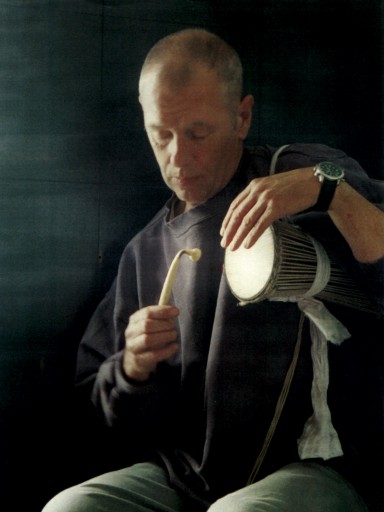
David ‘Pick’ Withers came into the world in 1948 in the East Midlands city of Leicester – not exactly the swing-capital of post-war UK, but not entirely without its own ambiguous musical opportunities. For Pick, his discovery of drums can be traced back to the Boy’s Brigade marches he witnessed as a child in 1950’s Leicester.
“I was aware of playing on biscuit tins with knitting needles as a child and asking my parents for drums, but I was never allowed them. In those the days the Boy’s Brigade would march around Leicester on the first Sunday in every month and you could spontaneously run out and march on the pavement with them and somehow, that idea got into my head and I joined the local Boy’s Brigade. But I knew why I was joining – I wanted to get a drum! So I marched around for a year with them and then asked for a drum.”
Unfortunately, this request was denied and the elusive drum was substituted by blowing a Bugle for a year whilst waiting for a drum vacancy. However, due to the natural turnover of Brigade members, an opening for another drum player was eventually found and Pick finally made contact with his object of desire.
”The only formal tuition I had was from a guy called Barry Bonds; he gave me the basics of five-beat rolls, Paradiddle’s – very, very basic stuff. Everything I’ve learnt subsequently I’ve learnt myself through books and learning to read. I remember having a book by Eric Little, a Premier endorsee who played in big bands and seeing the first chapter ‘there’s only one way to hold the sticks’ (traditional grip). I was playing like that anyway because I was in a marching band!”
Eventually, Pick attained the position of ‘unofficial’ Lead Drummer in the Boy’s Brigade; ‘unofficial’ because due to his Grammar school studies, he couldn’t commit to the extra activities (Wayfarers, First Aid etc) necessary to earn the ‘stripes’ to graduate to Lead Drummer. However, Pick’s advanced skills were always called upon whenever there was a Lead drum part to play, as the holder of the official title wasn’t up to the required standard. By the end of the 1950’s American Rock’n’Roll had hit Britain with Elvis as the newfound God of the genre. Unlike other boys of his age, Pick took a dislike to Presley and focused his attention on the home-grown talent.
“My first influences were ‘The Shadows’ – thankfully – because they gave you a great basic principle for playing in a combo, and they had good drummers. If you grow up in a provincial city like Leicester your sphere of influence is very limited. You’ve got Radio Luxembourg and a transistor radio and that’s not giving you any information at all!”
Being successful in the Boy’s Brigade saw Pick’s parents giving way to buying him his first drum kit, a Fablon covered Ajax set with no Floor tom. With this acquisition, Pick was able to attempt to replicate the drum parts and solo’s he heard on Shadows records, as well as paying attention to the various patterns played on the ride cymbal, “it’s there to give your right hand something to do!” By the early 60’s Beatlemania was very much in vogue influencing a generation of inner-city adolescents to pick up guitars in a Rock’n’Roll revolution. The Leicester Boy’s Brigade members were not immune to the wave of youth culture that exploded on the back of Merseybeat and soon found their own musical outlet.
“I’m eternally grateful to ‘The Beatles’ because they opened everything up for me and by the time I was 18 I was playing in Germany. There was a group in the Boy’s Brigade and we played at the youth club. I was the best drummer and they put me in the group and we did Chuck Berry and Beatles stuff.”
Goodbye Leicester, Hello World
Having cut his teeth in the Boys Brigade group Pick’s next move was joining local band, ‘Berkley Squares’, followed by a six month stint in Germany on the club circuit with a new Rogers kit. Upon returning home, Pick spent a few months unemployed before taking up an offer to join a band called ‘The Primitives’, who had an Italian recording contract, cumulating into a 3 year career in Italy. Whilst there, Pick crossed paths with the ‘The Doc Thomas Group’ (an early incarnation of ‘Mott The Hoople’), becoming friendly with the band and their drummer, Dale Griffin. The connection was to serve him well after ‘The Primitives’ had run their shelf-life, as the band would provide Pick with floors to sleep on in London whilst he went in search of auditions. After answering an ad in the ‘Melody Maker’ for a job with a band called ‘Spring’, Pick found himself travelling to (the now legendary) Rockfield studios in South Wales for an audition, the outcome of which, was successful. ‘Spring’ had a deal with RCA and the next three years saw one album being recorded and lots of gigs in the South Wales/Herefordshire area on a new Ludwig kit with Paiste cymbals.
“When ‘Spring’ ran its course there was an attempt to create a ‘house’ band at Rockfield. I ended up doing a tour for Dave Edmunds in a band that included Andy Fairweather Low, to promote ‘I Hear You Knocking’ and a few years later I ended up touring in ‘Brinsley Schwarz’ with Edmunds and Nick Lowe. Dave had a very loud Fender Goliath amp and I was terrified of it! He was a big fan of ‘The Beach Boys’ and announced one day that he’d found the ultimate sound for guitar – double tracked 63 times! Apparently. 64 was too much! he’s got a great pop voice along with the late Gerry Rafferty who I also recorded with. I ended up doing lots of sessions (in Rockfield) and when I went there it was a very…shambolic studio! I was there for about three years and then I moved to London in about 1973.”
Back in London, Pick found himself sleeping on peoples floors (again) until he discovered an opening into the newly burgeoning Folk scene, playing with artists like ‘Magna Carta’, Ralph McTell and Bert Jansch. During this period Pick was able to connect and work with musicians Rod Clements and Simon Cowe, both members of Northumberland Folk-Rock legends, ‘Lindisfarne’ and also now living in London. Connecting with musicians from the North-East of England resulted in him being introduced to guitarist and song writer, Mark Knopfler, now residing in Deptford, south-east London. Networking within the London music scene had definitely rewarded Pick with some very fortuitous links and a busy work schedule.
“I ended playing with Charlie Dore – the sexiest derriere in Rock’n’Roll! ‘Charlie Dore’s Back Pocket’, she had a hit with ‘Pilot of the Airwaves’ – she’s still around I think.”
Whilst playing for Dore, Pick was also a member of the un-signed Dire Straits who were all toiling at non-musical daytime commitments and gigging by night.
“Mark was a teacher at art college, John (Isley) was studying at Goldsmith’s college and I think David (Knopfler) was a social worker.”
A Strait Career
Despite urban myth, the band did not undertake a mammoth amount of gigging before they were signed to a five year major label deal. In fact, they achieved the anomaly of getting close to being signed without a manager, something unheard of today. The band also had a publishing deal unusual by modern standards, due to all members being bound by the contract, rather than just main songwriter, Mark Knopfler. Historically, publishing companies were paranoid about falling into arguments over royalties with the bands main writer – quite a common occurrence back in the day. When a situation like this arose, another member of the band would suddenly – and conveniently – become the ‘composer’ overnight and seek a more lucrative publishing contract with a rival publisher!
“I didn’t want to sign as I wasn’t a writer; but they insisted that we all signed. The publishing deal was just there stop me from getting my own publishing deal with new songs!”
Debut album ‘Dire Straits’ (1978) produced the classic 1979 hit, ‘Sultans of Swing’, breaking the band into the consciousness of the British public when it reached No.8 in the UK charts (No.4 American Billboard) and with it, introducing a misnomer into the world of drum folklore. Regarding the verse that features the line “when the time bell rings”, it is often assumed that Pick played a Paradiddle between Ride cymbal and Snare drum. However, this is not as it seems…
“It’s not a Paradiddle. I knobbled it off a ‘Poco’ live record! It’s a drummer called George Grantham and I learnt if off a lick that starts on the cowbell!”
Following the success of the bands second album ‘Communiqué’ (1979), Pick was recommended to play on the (eventual US platinum selling) Bob Dylan album, ‘Slow Train Coming’; a prestigious undertaking for a lad from Leicester who started out following a Boys Brigade marching band.
“It’s like being a professional footballer waiting for that million pound transfer deal. Doing Dylan was a big a change for me, a benchmark. When I came away from that felt I didn’t have to prove myself to anybody anymore. My only reservation was that it was ‘the religious album’ and I was so looking forward to doing something like ‘Blood on the Tracks’ or ‘Desire’! We recorded at ‘Muscle Shoals’ with Barry Beckett and Jerry Wexler producing. Jerry was like the football coach; he had a tremendous presence, one of the great icons of the R&B era. He used to tell us fantastic stories and anecdotes over dinner!”
The recording process with Dylan proved to be an enlightening experience.
“He likes to have everyone there from day one. He doesn’t do overdubs or guide vocals; the vocal he sings on the first take is the master vocal. I have tremendous admiration for him. That’s why you get such wonderful energy on the tracks; but Wexler was determined we wouldn’t do this and sent various people home. Dylan was quite suspicious of this but went along with it and eventually relaxed into it. There was one track about 15 verses long that Wexler wanted to edit. So we cut the tape down to about 7 verses and Dylan overdubbed his new vocal, which he didn’t like. So it was re-edited using the original vocal take and it was so much better as you could hear us responding to his voice. It was a bit jumpy in parts as they couldn’t get the backing tracks as clean as the edit that he overdubbed vocals on; but it was a better overall feel. I was only with him for ten days but I think he was pleased with what I did. I learnt something during that session about recording and keeping ones integrity.”
The third Straits album, ‘Making Movies’ (1980) was a short album song-wise, but most definitely quality over quantity, spawning the hit ‘Romeo & Juliet’ and populated with an exemplary drumming approach with some awesome feels. Check out Pick’s work on ‘Skateaway’ for a lesson in laid-back but precise in-the-pocket playing. Recorded in America with Jimmy Iovine and Shelly Yakus, Pick was to experience some new approaches in achieving drum sounds.
“We used Remo Diplomats on the kit. Three takes and we threw them off! We used torque keys for the tension, it was murder! It was worth it for the sound…but it was hell! Shelly had some Hi-Hats he wanted me to use. They were rather dull – almost like a dustbin lid sound effect, but he EQ’d them. The pay-off was that they didn’t bleed.”
After four successful albums culminating in ‘Telegraph Road’ (1982), Pick feared that the band were moving more into Stadium Rock territory, an accurate prediction on his part. Not wanting to fall into a hedonistic existence where everyone around you tells you how ‘great’ you are until you actually start believing it, Pick gracefully bowed out of the band, leaving an opening that Terry Williams (another Rockfield studios stalwart) would fill – at least for live work. Despite turning his back at a point in the bands career that elevated them to A-List international stadium-band status, he has absolutely no regrets about his decision and finds the idea of dinosaur-rock-band-reunions quite abhorrent.
“I don’t like nostalgia – I believe in ‘Now’. I’m glad I did all my work when I did and not today. But I don’t think the opportunities I had are there for young musicians today and it does worry me.”
Post Dire Straits, Pick adopted a fairly low-key life, choosing to spend more time with his family – though by no means was he idle. Work with artists like Brian Auger, Dennis Locorriere and Joan Baez cropped up, along with other calls reserved for those lucky enough to have reached that certain level in their profession.
Gear Talk
With a career now in its fifth decade, Pick has experienced enough drum equipment to settle on the tools of his trade that he uses today. On cymbals, Zildjian K’s are now his favourite choice – though he did spend his Dire Straits career as a Paiste endorsee, of whom he speaks very highly.
“They were very approachable, European and they were innovative. Zildjian were very expensive and had no profile to speak of over here. I finally got to them about ten years ago and they have great definition. I use Paiste when I practise and Zildjian when I play live.”
He also loves what he’s heard on recordings of the Sabian Jack DeJohnette signature line, but has experienced difficulty locating any to try. So if anyone in Sabian land is reading…
As for drum set-ups, Pick has pretty much settled on his old Gretsch kit from his ‘Sultans’ days, a black round badge in 18”, 12” 14” sizes. Not necessarily his favourite kit, but “small and practical”. As for Snare drums, he loves his old Leedy 14” x 5” wood shell along with a more modern counterpart.
“I’ve also got a steel Ayotte I bought in New York. I don’t use it at the moment with the band I’m with as it’s too bright; but I really like it.”
There was also a somewhat dubious Eddie Ryan kit during the Dire Straits years…
“It was murder! It was big and the tom-toms were murder to tune because I don’t think they were really made true. You could never get even tuning on the tension rods. I gave that away to the Nordoff Robbins music therapy trust.”
Future Pathways
Talking about the music industry today, Pick is in no doubt that things have changed for the worse. He has little time for the Pop Idol/X-Factor gladiatorial galas from the Simon Cowell entertainment factory, with their never ending supply of over produced Diva’s on vocal auto-tune. Furthermore, he blames the record companies for not tackling the digital nature of music consumption soon enough.
“The industry’s changed so much; you’re attacked on all levels these days. I don’t believe in downloads, they think ‘I can download that and have it all for nothing.’ I don’t know how that works in peoples minds? Where’s the value in it? There’s no artistic value, no aesthetic value, no sentimental value; it’s just there – bin it! I don’t know how they can make a considered decision about music on iTunes through tiny computer speakers.”
As mentioned earlier, he remains concerned about exactly how and where the younger generation are going to gain the industry experiences that he was fortunate to have; though does see salvation through live performance.
“I put all my faith in live music, the last frontier. I still love playing. I don’t like the baggage that goes with it anymore – the travelling, the sitting around waiting for venues to open. It’s alright when you’re 16, 17, 18; it’s all part of the experience. I was one of the judges at my daughters school ‘Battle of the Bands’ competition. There were drummers. Bass players, guitarists, all with varying degrees of competence, enthusiasm, bravado – the whole lot! I thought it was a great atmosphere.”
As well as taking on selective gigs, Pick is also devoting some time to teaching, in order to spread the benefit of what he has learned over a lifetime as a professional musician. Of late, he’s made some school visits, teaching in small groups and one-to-one, with a strong emphasis on developing coordination and independence. As for what still inspires him as a player today, Pick refers to the classic greats of the 20th century as anchor points, preferring to stay clear of the modernist surge toward the purveyors of Olympian techniques.
“It all seems too pyrotechnical to me…I’m not sure if there’s any soul in it? I like Pete Erskine, I think he’s a good player; I like Gadd, I like Grady Tate, Purdie, Jack DeJohnette, Harvey Mason, Omar Hakim, Ed Thigpen, Steve Smith – he’s a fine player. The pyrotechnical ones I’m not sure about – but then, it’s a personal thing. I love James Taylor and the guy he had who killed himself – Carlos Vega, what a waste…’Hourglass’ the last album he did, I think that’s dedicated to him. Yes…James Taylor, I’d love to play for him!”
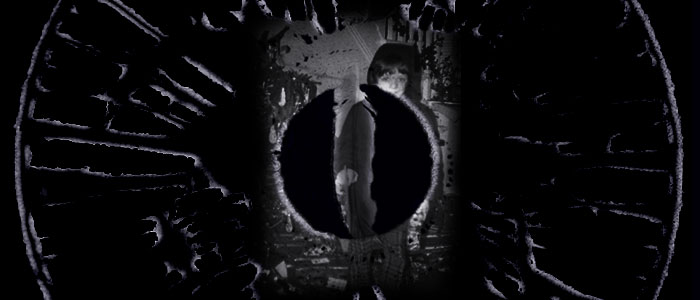
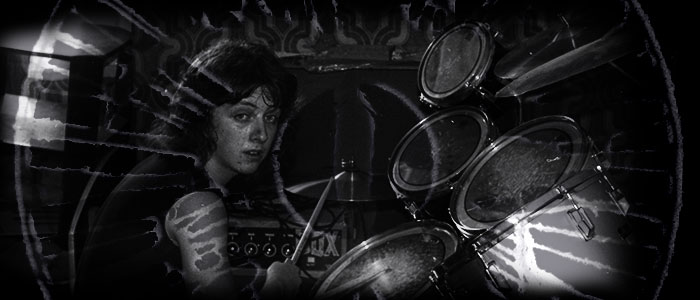
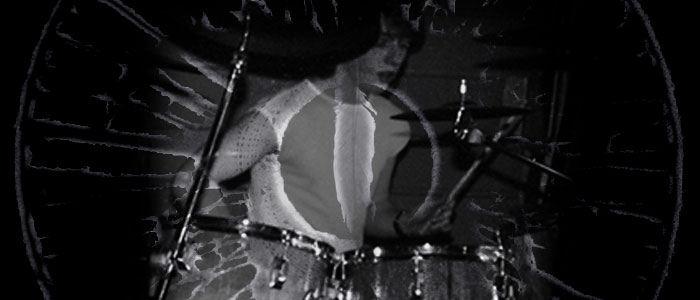
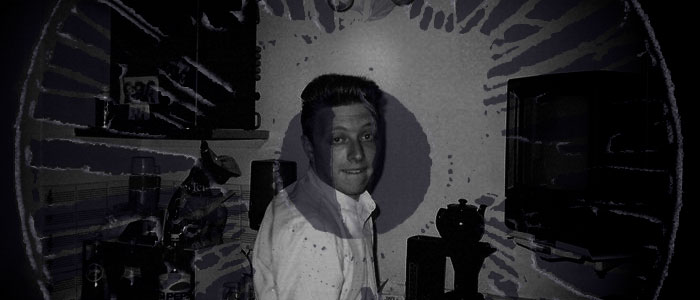
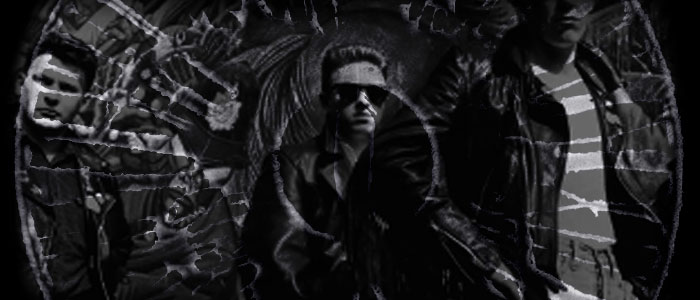
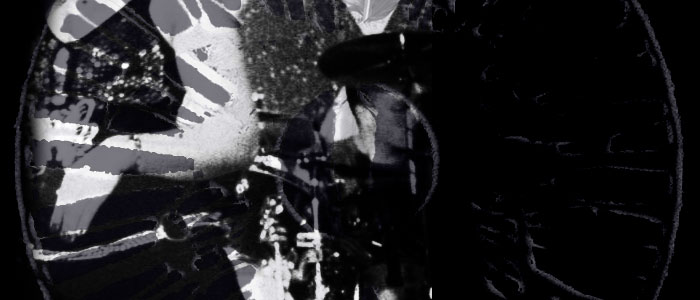
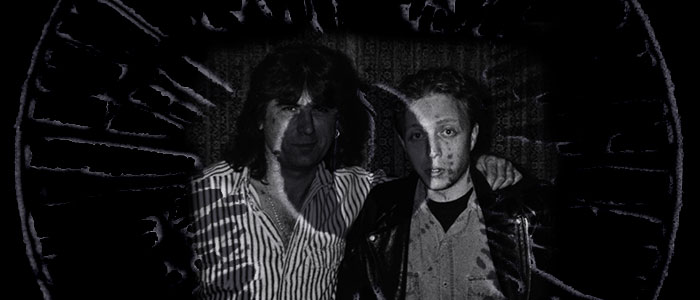
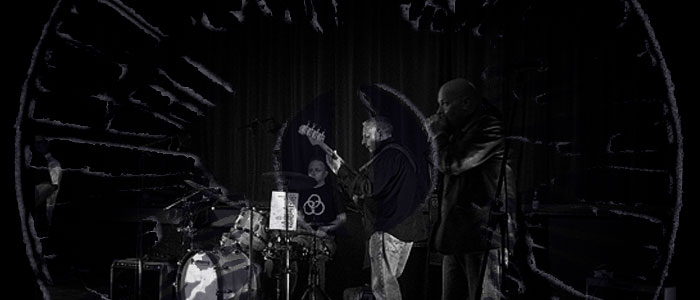
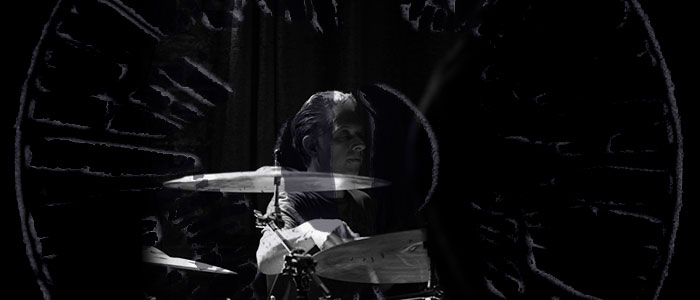
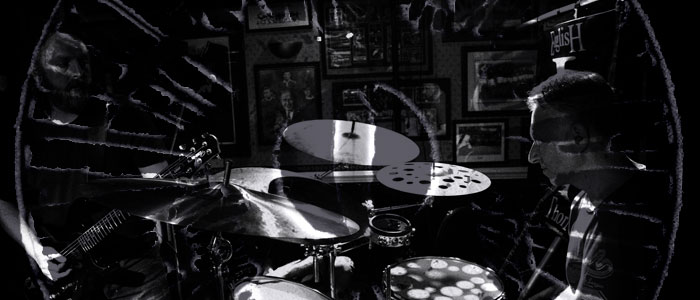
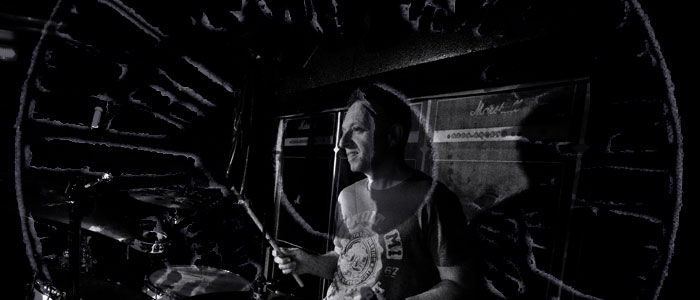
My friends sister Hamar is married to the drummer
What a wonderful read, a great story of a great career.
I remember the Slow Train Coming intrrlude, a favourite Bob album of mine, working under those people must have been tremendous.
Pick has great feel, bringing some jazz, swing feel to 4/4 time, not many drummers can. Surprised he didn’t name Joe Morello as an influence,must have forgot? I like the reggae style on a couple of Dylan tracks,again few drummers can combine those styles,mainly Stewart Copeland.
Great comment, I’ll ask Pick if Joe Morello was an influence when I next see him!
Which are the drums he plays on songs like Skateaway and Tunnel of Love? The sound on the drum rolls on those songs is amazing and I don’t think I’ve heard anything else like it.
Pick told me he used an Eddie Ryan custom kit on the album, which was a devil to tune. He used coated Remo Diplomat heads and they had to be changed frequently.